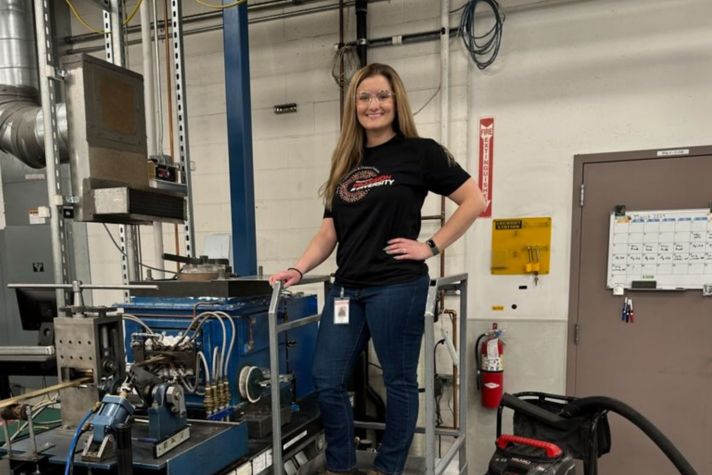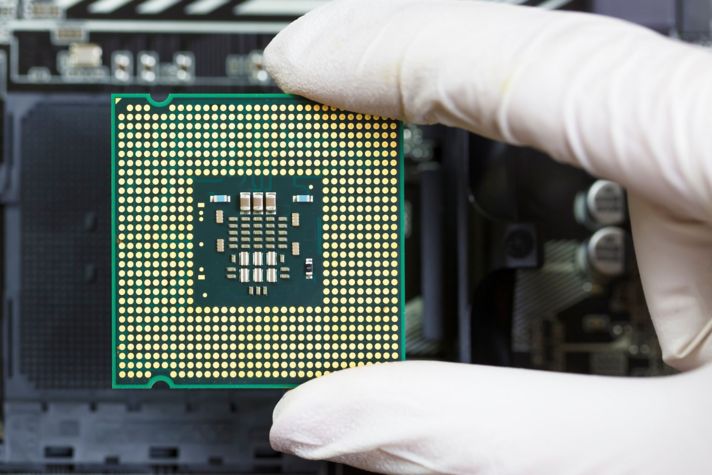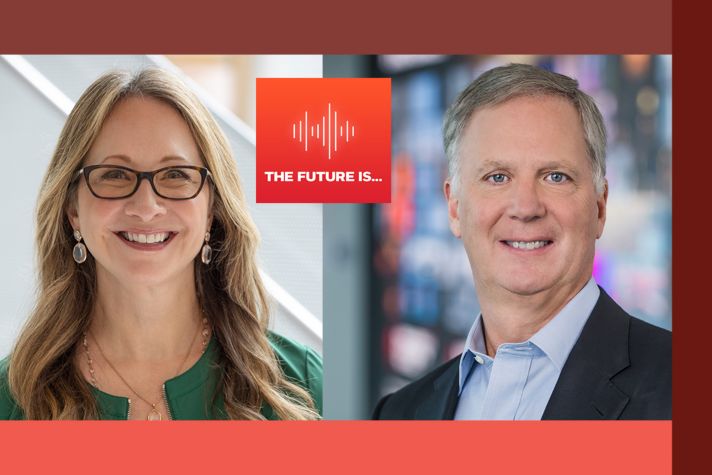-
 Global
Global-
Africa
-
Asia Pacific
-
Europe
-
Latin America
-
Middle East
-
North America
- |
- BUSINESSES
- |
- Contact
- |
-
 Global
Global-
Africa
-
Asia Pacific
-
Europe
-
Latin America
-
Middle East
-
North America
- |
- BUSINESSES
- |
- Contact
- |
You are browsing the product catalog for
- News
- 8 Engineers Remember Their First Patent
8 Engineers Remember Their First Patent
During Engineers Week, we asked our inventors about how they solve the world’s challenges.
Engineers are innovators.
They solve critical problems daily and haven’t slowed down during the pandemic.
Their efforts are formally acknowledged through patents – giving them intellectual property exclusivity to the innovation. Honeywell has 36,000 active records, including patents awarded and pending in the United States and other countries.
Here’s what 8 engineers had to say about inventing.
Michael Pouchak, Software Engineer, Honeywell Building Technologies

Number of U.S. Patents: 22+
What was it like to receive your first patent? It is rewarding to see your work finally published and recognized as a valuable contribution to the technical “art.” It is also rewarding to have our business gain market share from additional sales due to the advantages of the patented innovations.
What advice would you give to someone who wants to be an inventor? Spend a lot of time understanding the problem space and investigate prior art from other problem solving approaches – this can give you a better understanding of problems and value for the idea.
Jerry Sommerville, Advanced Test Engineer

Number of Patents: 2
What was it like to receive your first patent? The first patent came from my master’s project where I developed software to make a robot walk on level ground. The second patent idea came from observing a sign spinner in costume twirling a sign in the hot sun. It seemed that the work that human sign spinner was doing could be done by the sun.
What advice would you give to someone who wants to be an inventor? My advice to those who want to be an inventor is that the old adage “necessity is the mother of invention” holds true. Look for opportunities to solve a problem that is a societal need. Use all your experiences from your past and from others to solve the problem.
Hunter Hammond, Engine Structures Lead Engineer

Number of Patents: 2 and one Trade Secret
What was it like to receive your first patent? It was very exciting to receive my first patent! When I performed my initial disclosure of the invention, I was unsure if the ideas were actually patentable. However, as the process progressed, I was assured the ideas had merit, and as the application process moved forward my excitement grew. I still proudly display my first patent award in my cubicle.
What advice would you give to someone who wants to be an inventor? I feel there’s a misconception in our society that inventors are people who only strive to invent “things” and simply do nothing else. In reality, most inventions are a by-product of attempting to solve problems or issues. Do not focus on “inventing” – focus on finding a way to simply and elegantly solve a problem, and the inventions will find you.
Sally Ann Keyes, Senior Advanced Research and Development Engineer
Pictured at top of the page
Number of U.S. patents: 3 pending patents
What was it like to receive your first patent? Exciting! It feels surreal to have made a contribution that is recognized as valuable and unique at such a large scale. It’s humbling and motivating for my future work!
What advice would you give to someone who wants to be an inventor? Lean into what you are passionate about. I have my most creative ideas when I am excited and enthusiastic about what I am working on.
Ben Wolf, Sr. Offering Management Lead

Number of U.S. Patents: 1 and14 pending
What was it like to receive your first patent? It was fantastic. I was really elated as it was a really important patent to hold that has a really strong commercial opportunity for Honeywell. Also telling your kids that you are officially an inventor is good fun too!
What advice would you give to someone who wants to be an inventor? Anyone can be an inventor. If you have a good idea, irrespective of whether you are an engineer or not, you can raise an invention and have your name on a patent. Don’t be shy about putting up your hand saying that you have a good idea. Work with your colleagues too, all of my patents have been in conjunction with others.
Chris Fuller, Senior Advanced Electrical Engineer

Number of Patents: 12
What was it like to receive your first patent? My first published patent was very exciting. I love being an engineer and trying to find ways to solve hard problems. I felt validated as an engineer.
What advice would you give to someone who wants to be an inventor? Pursue topics on which you are most passionate, or problems which drive you crazy. Learn all you can about the technology you’re inventing, validate your ideas with experts to avoid repeating mistakes others have made and never give up when you know you have a good solution.
Daniel C. Merkel, Research and Development Engineer

Number of U.S. Patents: 146
What was it like to receive your first patent? I was so excited; I asked myself, ‘could little old me with only a bachelor's degree among all these PhDs’ really get a patent?’ The rest is history. Someone snapped a photo of me receiving a certificate for it from a retired lead patent lawyer at the annual patent awards banquet that I still display in my office. I also vividly remember the pride in my wife’s eyes when I was walking back to our table.
What advice would you give to someone who wants to be an inventor? Change your mindset. Convince yourself that any improvement to a process no matter how big or small has the potential to be an invention.
James W. Harris, Engineering Fellow

Number of U.S. Patents: 16
What was it like to receive your first patent? My first patent was granted about three years after coming up with the idea and submitting a summary of it for review by business leaders and technical experts within Honeywell UOP. Within Honeywell UOP a recognition dinner is held to celebrate patent milestones. I was invited to bring my wife to a dinner where all first, five, 10, 15 etc. patent milestones were celebrated.
Copyright © 2024 Honeywell International Inc.




